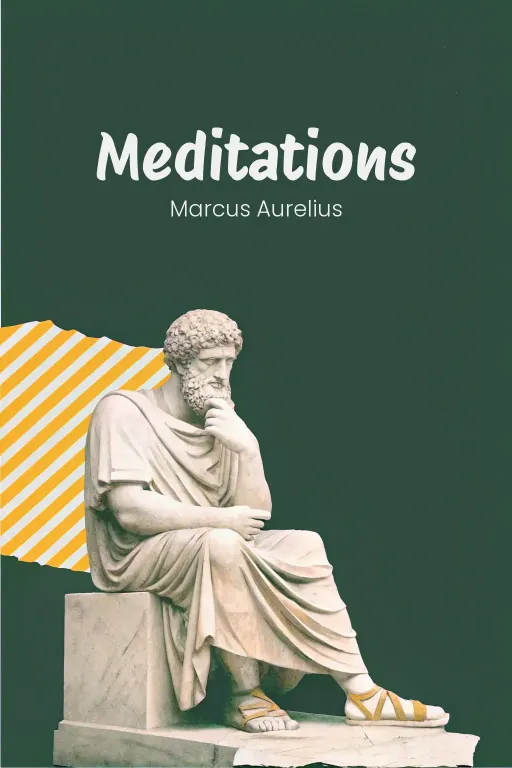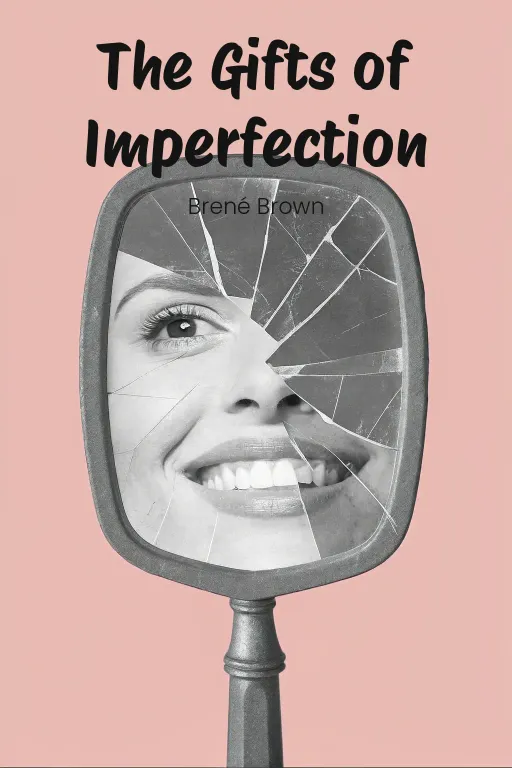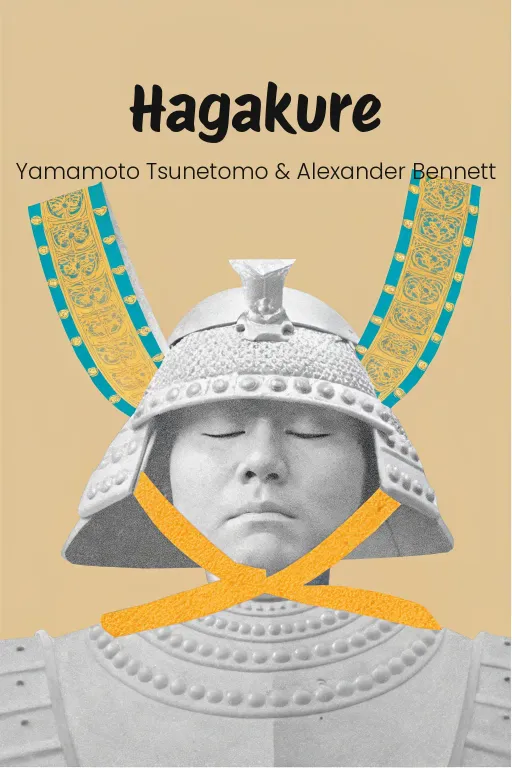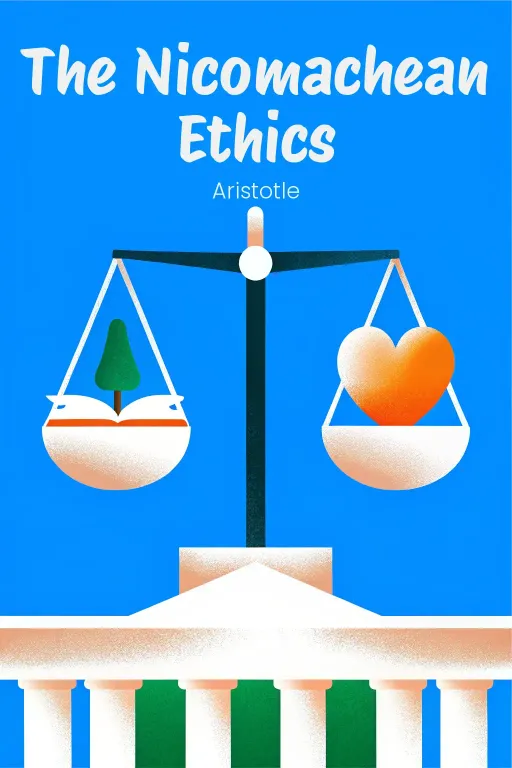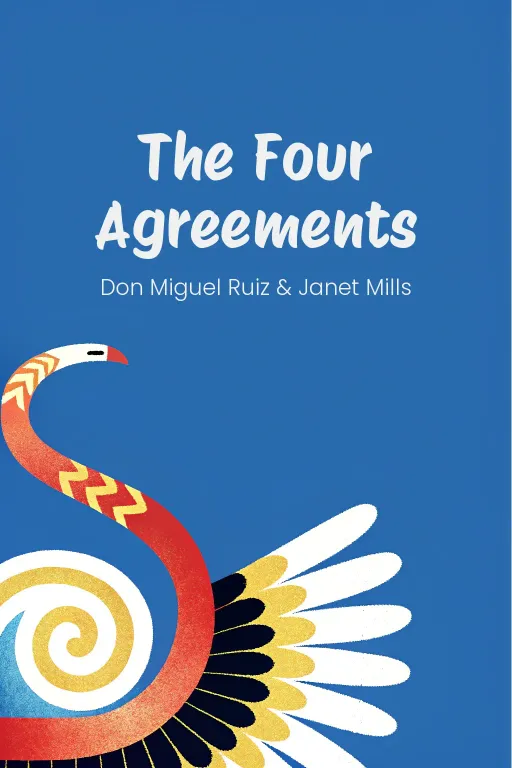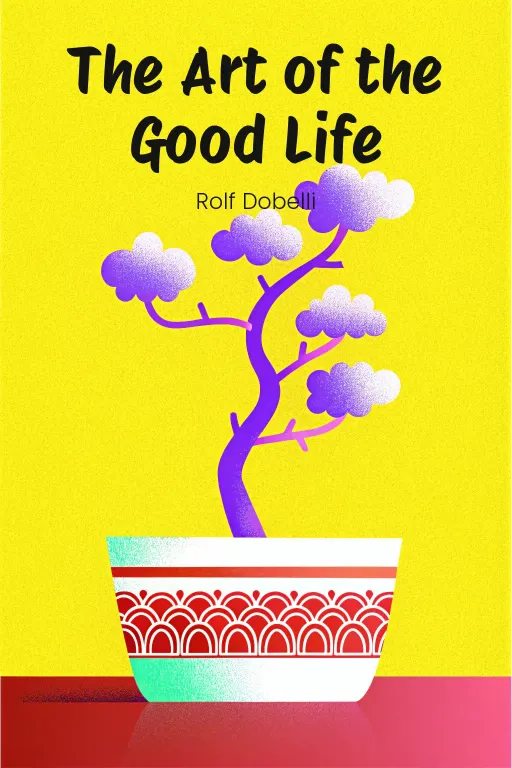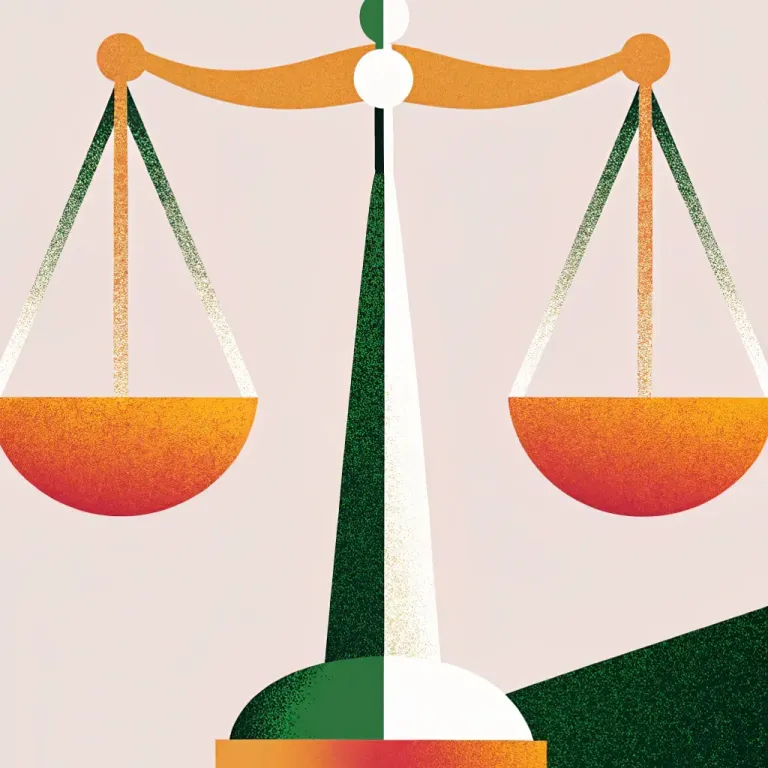
Build Your Best Life: The Ancient Way
Podcast by The Mindful Minute with Autumn and Rachel
Happiness as the End of Actions
Build Your Best Life: The Ancient Way
Part 1
Autumn: Welcome everyone to our exploration of one of the most influential works in philosophy, Aristotle’s Nicomachean Ethics! For today’s podcast, we’re going to unpack this 2,300-year-old roadmap to answer a really fundamental question: "What does it truly mean to live a good life?" Rachel: Alright, so we're not just dusting off old scrolls here for fun. Let’s be honest, deep down, doesn't everything come back to the pursuit of happiness? Whether it's striving for that corner office, hunting down the perfect sushi, or, you know, sinking into a Netflix marathon, aren't we all just looking for that feeling? Autumn: Precisely! But it's important to point out that, for Aristotle, happiness isn't the kind of fleeting joy you get from winning a prize or finding a delicious meal. No, for him, happiness, or eudaimonia, it's more profound. It’s about flourishing, about living a life of virtuous activity that’s guided by reason. It’s not just about what you do, but how you do it, right? Rachel: So, no life-hack happiness then, huh? No achieving enlightenment through excessive online shopping. He actually expects us to put in the effort for this whole happiness thing, doesn't he? Autumn: Absolutely! But the great thing is, Aristotle doesn't just throw this idea at us and leave us hanging. He actually provides a clear blueprint. He talks about developing crucial virtues like courage and wisdom, and he delves into how relationships and justice all fit into this larger picture. Rachel: So, philosophy as a practical guide to life. Okay, I’m intrigued. What exactly are we going to be digging into today? Autumn: We’re going to focus on three key aspects. First, we’ll explore why happiness is the ultimate goal in life, Aristotle’s so-called "north star." Next, we’ll break down the whole concept of virtues, and why living a good life involves finding the right balance, that sweet spot between extremes. And finally, we’ll look at Aristotle’s insights on justice, on friendship, and even on the ultimate pursuit of deep thinking. Rachel: So, from being a good person to having good friends, to contemplating the cosmos… we’re covering the whole spectrum, aren’t we? Autumn: We are. Think of it as constructing a solid foundation between improving yourself and contributing to a better society, thanks to some timeless wisdom.
Happiness (Eudaimonia) as the Highest Good
Part 2
Autumn: Okay, let’s dive into Aristotle’s cornerstone: happiness as the ultimate good, or eudaimonia. It’s “really” the foundation of his entire philosophy. He basically says that everything we do, every goal we pursue, aims at some kind of good. But there has to be a final, ultimate good – something that isn't just a means to another end, right? That's where eudaimonia comes in. Rachel: Alright, Autumn, let me play devil's advocate here. Isn’t this just a fancy way of saying, "People do what makes them happy"? Is it any different from the justification someone gives when they blow their savings on a motorcycle? Autumn: Well, not exactly. See, Aristotle’s eudaimonia isn’t about those fleeting moments of happiness. It's not the kind of buzz you get from instant gratification or something that quickly fades away. He’s talking about a long-term state of, like, genuine flourishing. It's about living in alignment with your best self, realizing your full potential, and doing it all through a life of reason and virtue. Rachel: So, he's not giving me the go-ahead to buy that motorcycle after all? Autumn: Only if it’s part of a virtuous life! Aristotle argues that those momentary pleasures or achievements – chasing wealth, pleasure, fame – are incomplete. Pleasure is great in the moment, but it's not enough to sustain you in the long run. Wealth is just a tool. And honor, well, honor depends on what other people think, so it doesn’t give you the self-sufficiency of true happiness. Rachel: Okay, so what's the alternative here? What's his grand plan for achieving this eudaimonia, this "flourishing"? Is it just about being virtuous for virtue's sake? Autumn: That's a great question. To understand eudaimonia, Aristotle poses the question: “What is the unique function of human beings?” I mean, everything has a purpose, right? The eye is for seeing, the knife is for cutting. So, what's our equivalent? His answer is that our unique function is our capacity for reason. That's what sets us apart. Rachel: So, we're just super-smart animals then? Where's the joy and spontaneity in that? Autumn: It doesn’t mean we become robots. Aristotle suggests that we achieve happiness by living a life of rational activity performed excellently and in accordance with virtue. It’s about balancing our emotions and desires with reason, using our special human ability to think critically and act thoughtfully. Rachel: Interesting. So, would Aristotle say that a kind scientist or an inspiring teacher lives a more fulfilling life than someone hustling for money on Wall Street? Autumn: Exactly. Think about the scientist. If their work is driven by curiosity, discovery, and a desire to help humanity, it aligns perfectly with eudaimonia. They’re using their reason, practicing intellectual virtues like wisdom, and contributing to something greater than themselves. But if someone's sole motivation is greed, they’re probably on a path that is just, hollow, you know? Rachel: I hear you. But this "balance of reason and virtue" thing – is it actually reliable? Wouldn't different people have completely different ideas about what’s virtuous? I mean, my idea of a good life might be retiring early and living on a tropical island. Autumn: Well, that's where Aristotle’s “function argument” gets “really” practical. Personal circumstances will differ, but cultivating virtues—traits that are inherently good—and finding the right balance is essential to happiness. Think of it like the Goldilocks principle: not too much, not too little, but just right. Rachel: Okay, give me a real-world example of that balance. Autumn: Courage, for instance. Imagine someone facing a threat. If they run away out of fear, that’s cowardice. If they charge in without thinking, that’s foolishness. But the person who assesses the situation and acts bravely—that's virtue. It’s about finding the sweet spot in your actions and, “really”, making it a habit. Rachel: So, virtues aren't just rules, they're habits. Like a moral muscle you build over time? Autumn: Precisely! Aristotle says that virtues aren’t innate; we learn them through practice. By repeatedly making good choices, until they become second nature. That's how you live in accordance with reason and take meaningful steps toward eudaimonia. Rachel: Okay, new question. What if you're in an environment with bad role models? What if your community makes practicing these virtues almost impossible? Autumn: That’s a crucial point. Which is why Aristotle emphasizes the role of community. He argues that humans are social animals, and we flourish in environments that encourage virtue. A negative environment can definitely set you back, but a supportive one can “really” help you grow. That’s why Aristotle ties personal happiness to communal well-being: you can’t truly flourish if you neglect the health of the wider community. Rachel: So, you're saying that my well-being – your well-being – is connected to others? Autumn: Absolutely. Through our friendships, our families, and the role you play in society, Aristotle argues that we lift each other up. True happiness isn’t selfish. The virtuous life thrives on, you know, contributing to the common good. Rachel: So, living well isn’t just “me time," it’s "we time"? Autumn: Exactly! Aristotle even calls justice the most important community virtue because it ensures fairness and harmony within a group. If you only focus on yourself, you’re missing the bigger picture of what makes life meaningful. Rachel: Okay, I’ll admit it – this idea of happiness as "flourishing," connected to virtue and community… it’s starting to sound a lot deeper than some fleeting, dopamine rush. Autumn: That’s the beauty of Aristotle. He shows us that happiness isn't about chasing fleeting highs; it's about building a life that’s rich, meaningful, and fully connected.
Moral and Intellectual Virtues
Part 3
Autumn: So, this foundational idea naturally leads us to the virtues themselves, right? They're basically the building blocks of a happy life. Aristotle splits them into moral virtues, which shape our behavior through practice, and intellectual virtues, which sharpen our ability to think and reason. This really connects individual ethics with how we live together, showing how virtues are practiced and honed over time. Rachel: Moral and intellectual virtues, huh? Sounds like the secret recipe for being a well-rounded person and acing your philosophy papers. So, where do we even begin with this? Autumn: Let's dive into moral virtues first. They're all about how you act. Aristotle explains them so well with his doctrine of the mean. He basically says virtue is all about moderation—finding that sweet spot between two extremes: too much and not enough. Rachel: “Balance” sounds great, but let's not just leave it as some abstract idea. Can we get a real-world example here? Autumn: Okay, courage is a good one. Think of a soldier in battle. They're going to feel fear, right? That's normal. But if they run away completely because of that fear, well, that's cowardice—a deficiency of the virtue. But if they charge headfirst into danger without thinking, that's recklessness—an excess. Courage is that balance where the soldier acts bravely, knowing the risks but not letting fear control them. Rachel: So, courage isn't about being fearless, but about managing your fear intelligently? That's actually pretty nuanced. Like walking a tightrope, you don't rush, but you also can't freeze. Autumn: Exactly! And Aristotle says you aren't just born with this balance. You have to cultivate it through habit—practicing and thinking about your actions until the virtuous response feels natural. It’s like a well-rehearsed skill. Rachel: So, becoming virtuous is like hitting the gym for your soul? You've got to work out consistently? Autumn: That's a great way to look at it! Aristotle actually compares it to learning an instrument. A pianist doesn't just know music theory, they practice until their fingers just know where to go. Moral virtues become second nature that way, through practice and reflection. Rachel: But what about other moral virtues? I get courage, but everything isn't life or death. What about, you know, everyday stuff like eating or spending money? Autumn: Good point. Aristotle talks about temperance, finding balance in enjoying physical pleasures. Eating, for example: overeating shows a lack of restraint. But refusing all pleasure, thinking that makes you noble, is just as unbalanced. Temperance is that sweet spot—enjoying things in the right amount, staying in control so your desires don't control you. Rachel: So, the temperate person enjoys the cheeseburger but doesn't eat the whole menu, and they're not miserably sipping lettuce water, feeling superior. Autumn: Exactly! For Aristotle, temperance builds a healthy relationship with your desires. You recognize the role pleasures play in life but don't let them take you off track from your goals. Rachel: Hmm, but where do you draw the line? What's too much or too little? Isn't there a danger of just justifying what feels “balanced” to me? Autumn: That's where practical wisdom, or phronēsis, comes in. It helps us figure out how much courage, temperance, or any virtue to use in specific situations. It's like a moral compass, guided by experience and good judgment. Rachel: So, moral virtues are the "what," and practical wisdom is the "how?" I might know being fair or generous is important, but phronēsis helps me be fair in a conflict or generous without going overboard. Autumn: Exactly! And Aristotle is clear: practical wisdom isn't just being book smart. It comes from experience—making decisions, learning from mistakes, and adapting to life. Rachel: Okay, so moral virtues shape behavior, practical wisdom steers the ship. But what about intellectual virtue? I think you mentioned sophia, philosophical wisdom, earlier. Autumn: That's right. Phronēsis is for practical decisions, but sophia is for chasing ultimate truths. It's the wisdom that asks the big questions: What's justice? What's happiness? What is existence? Rachel: So, more of the "what does it all mean?!" vibe. But let me play devil's advocate—how does staring at the mysteries of the universe help anyone with their actual life? Autumn: Because life isn't just about practical challenges—it's also about understanding your place in the world. For Aristotle, sophia is the highest intellectual virtue because it aligns with our unique capacity for reason. Asking the big questions enriches life, even if the answers aren't going to solve day-to-day problems. Rachel: Alright, so practical wisdom is for navigating traffic, and philosophical wisdom is for… pondering why traffic exists in the first place? Autumn: You could say that! Aristotle thinks a truly flourishing person balances both. They use practical wisdom to live ethically and make good decisions, engaging with larger truths through philosophical wisdom. Rachel: Makes sense, though sophia sounds pretty elite. Like, not everyone’s got time to contemplate the cosmos between school runs and work emails. Autumn: That's why Aristotle doesn't expect everyone to be full-time philosophers. But he believes that having moments of contemplation—however small—can really enrich your life. It's about connecting the "how" of life with the "why." Rachel: Okay, so it sounds like moral virtues are our foundation, intellectual virtues offer guidance, and practical wisdom keeps it all working together? Autumn: Precisely. Aristotle says these virtues are interdependent. You can't practice courage well unless your reasoning knows what the right balance looks like. And you can't develop intellectual virtues fully without discipline and ethical action. Rachel: So it’s all connected—being good, thinking well, and living wisely. That’s quite a system. Autumn: It is. Aristotle’s vision shows us that ethics isn’t just theory—it’s a way of life that integrates thought, action, and community into something truly fulfilling.
Justice, Friendship, and the Contemplative Life
Part 4
Autumn: Understanding these virtues really sets the stage for looking at how they play out in society and politics. That’s where Aristotle’s ideas on justice, friendship, and contemplation really tie everything together, you know? They synthesize his earlier thinking and show how doing the right thing isn’t just a personal thing, but creates a foundation for a better society for everyone. Rachel: So, we’re going from good people to good communities and ultimately, a good world, huh? Autumn: Exactly! Aristotle's really building a vision, piece by piece. Justice makes sure things are fair, friendship bridges the gap between us, and contemplation… well, that's where we find real happiness, using our minds to the fullest. Let’s dive into justice first. Aristotle puts that right at the heart of a good society. Rachel: Alright, justice… Are we talking about the "blindfolded lady with scales" kind of justice? Or is Aristotle digging a little deeper here? Autumn: Oh, way deeper. Aristotle sees justice as more than just a personal virtue. It’s deeply connected to the well-being of the whole community. He breaks it down into two main types: universal justice and particular justice. Universal justice is the big picture – all those good actions that make society better. It’s basically living right within your community. Particular justice gets more specific, and that comes in two flavors: distributive and rectificatory. Rachel: Okay, I think I’m following. So, universal justice is kind of the overall vibe – being a good citizen. And particular justice zooms in on the details, like splitting the pizza fairly or fixing things when someone gets ripped off, is that right? Autumn: You got it. Let’s start with distributive justice. Aristotle says, it’s all about making sure resources, honors, responsibilities… everything is handed out fairly, based on what people deserve. Like, imagine a community garden. If one person puts in three times the work and knows way more about gardening, they should get a bigger share of the harvest, right? That’s fair, and it encourages people to work hard and contribute. Rachel: Yeah, makes sense. Rewarding hard work while being fair… sounds good in theory. But what happens when people can’t contribute as much? If someone is sick or elderly, won’t they get left behind by a system that only rewards merit? Autumn: That’s a really important point, and later philosophers really tackled that. Aristotle, though, kind of assumes a community where things are fair and people's individual situations are taken into account. He's not saying we need strict rules. He’s saying that distributing things fairly works best when we look at what people actually bring to the table, as well as what they really need. Rachel: Got it. Now, rectificatory justice… is this where Aristotle makes us apologize for, you know, accidentally deleting someone’s presentation? Autumn: Sort of! Rectificatory justice is about fixing things when something unfair happens – like theft, scams, or just plain causing harm. Aristotle sees it as restoring balance by making things equal again. Like, if a seller tricks a buyer into paying too much, rectificatory justice says they have to give the extra money back, making up for what they did. Rachel: So, distributive justice is about proportion, but rectificatory justice is more like… “exact accounting.” You’re balancing the scales, bringing things back to where they should be, right? Autumn: Exactly! That’s why rectificatory justice isn’t about merit or contribution. It’s purely about fairness through equality, making sure no one gets unfairly taken advantage of, and fixing things when they do. All these types of justice working together create the groundwork for a harmonious society. Rachel: Aristotle was onto something, huh? But justice seems pretty tied to how we treat each other – it’s all about relationships. Which, I guess, brings us to friendship, right? Autumn: Exactly! Aristotle calls friendship, or philia, a key piece to human well-being. He spends more time talking about friendship than pretty much anything else in Nicomachean Ethics because it’s where doing the right thing personally connects with living in a community. Rachel: Friendship? So, he's telling us to be good buddies? I'm guessing there is more to it than just suggesting weekly get-togethers. Autumn: Oh, definitely more to it! Aristotle identifies three types of friendship: friendships based on usefulness, friendships based on pleasure, and friendships based on virtue. Utility friendships are all about mutual benefit – think business partners or networking contacts. Pleasure friendships… those are more about having fun and shared hobbies. These first two are pretty common, but they don’t usually last, because they depend on things outside of ourselves. Rachel: So, like a workout buddy who disappears when you stop hitting the gym… or a LinkedIn connection who vanishes as soon as they get their dream job? Autumn: Exactly. But virtue-based friendships… those are something else. These are real, lasting connections built on admiring each other’s moral character. They're rare, but really powerful. Think of two colleagues who not only help each other out at work, but also push each other to be better people and strive for excellence. Rachel: So, these are the friends who not only call you out when you’re being ridiculous, but also cheer you on when you’re doing something amazing? Autumn: Precisely. Aristotle calls this kind of friend “another self,” someone who shares your values and helps you grow. They encourage you to be brave when you’re scared, fair when you’re unsure. In short, they reflect back your best potential. Rachel: Sounds amazing in theory, but aren’t virtue friendships kind of… rare? Not everyone has a best friend who also serves as their moral compass. Autumn: They definitely are rare, and Aristotle knows that. But he also shows how friendship is crucial for connecting personal well-being with community harmony. Even the less "ideal" friendships – those based on usefulness or pleasure – help create social connections and mutual support, which are all important for a thriving community. Rachel: Okay, so it's not just about being all philosophical with your intellectual friends. Friendship, no matter what it’s based on, is essential for making societies work, got it. Autumn: Exactly. Aristotle even points out that society itself is built on bonds of philia. Whether it's families, civic groups, or even entire political communities, friendships encourage cooperation, goodwill, and trust – all the things that are important for justice and harmony. Rachel: So, in Aristotle's world, a just society kind of grows out of relationships built on fairness and a shared sense of purpose. And that "shared purpose" brings us to contemplation, right? Autumn: It does. Aristotle presents the contemplative life as the ultimate form of happiness – even higher than justice or friendship. He argues that contemplating fulfills humanity’s unique function: the exercise of reason. Rachel: So, contemplation is the crown jewel – what we’re aiming for once everything else is in place? What does that actually mean, though? Just staring at the sky and thinking deeply? Autumn: In a way, yes! Contemplation involves engaging with the big questions – thinking deeply about ethics, knowledge, beauty, the universe… For Aristotle, it’s the most self-sufficient and satisfying activity you can do. Unlike external things or even being virtuous, it doesn't depend on other people or what's happening around you. It's purely intellectual and rewarding in itself. Rachel: Okay, I get the appeal, but isn’t it kind of… impractical? Who has time for deep thinking when you’re raising kids or working to pay the bills? Autumn: Aristotle doesn’t ignore those real-world concerns. He argues that virtues like justice and friendship actually set the stage for contemplation. They create the stable, ethical community that allows intellectual pursuits to flourish. And while most people aren't going to live a life of pure contemplation, those moments of deep thought – even brief ones – can give life real meaning. Rachel: So, it’s not just for "philosophers only." Anyone can benefit from stepping back and reflecting, as long as they've built that foundation by living virtuously in their everyday lives? Autumn: Exactly. Aristotle's vision includes everyone, he emphasizes that the contemplative life isn’t separate from doing good or being part of a community – it's the culmination of it all. When justice ensures fairness, friendship inspires growth, and reason guides our choices, we’re in a better place to really engage with those deeper questions in life. Rachel: So justice holds society together, friendship strengthens it, and contemplation elevates it. I’ve got to admit, Aristotle’s system is pretty impressive. Autumn: It really is. By connecting personal virtue to social harmony and intellectual fulfillment, Aristotle gives us a model for living that's deeply personal and profoundly communal. It's a lasting blueprint for thriving.
Conclusion
Part 5
Autumn: Okay, so to bring it all together, Aristotle's “Nicomachean Ethics” gives us this idea of happiness—not just as a quick feeling, but as a lasting sense of fulfillment. It’s about living virtuously and thinking clearly, you know? Moral virtues guide our actions, intellectual virtues sharpen our minds, and together, they lead to a life of, well, balance and purpose. Rachel: Right, and it's not just a solo project, is it? Aristotle's ethics show us how our own happiness is actually tangled up with justice, real friendships, and contributing to a healthy community. It’s almost like he's saying, "Hey, you can't “really” thrive alone. You need other people to help you become your best self." Autumn: Precisely! And then, at the very top, we have contemplation – that ultimate form of happiness where we’re engaging with those deeper truths of life. It connects everything – our values, relationships, our work – into something bigger, richer, and just, well, deeper. Rachel: So, if there’s one big idea that sticks with you, Maybe it’s that Aristotle’s not handing out a magic pill or a cheat code to happiness. Instead, he’s “really” asking us to build a life on thoughtful choices, solid relationships, and a clear sense of why we're here. Autumn: Exactly, so, how about taking a moment today to just think: Are you finding that balance in your life? Are your relationships “really” helping you grow as a person? And are you setting aside time to “really” consider what's important to you? Rachel: Because happiness, real happiness, it’s not just about feeling good but, about flourishing. And that's definitely a journey worth pursuing.
